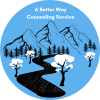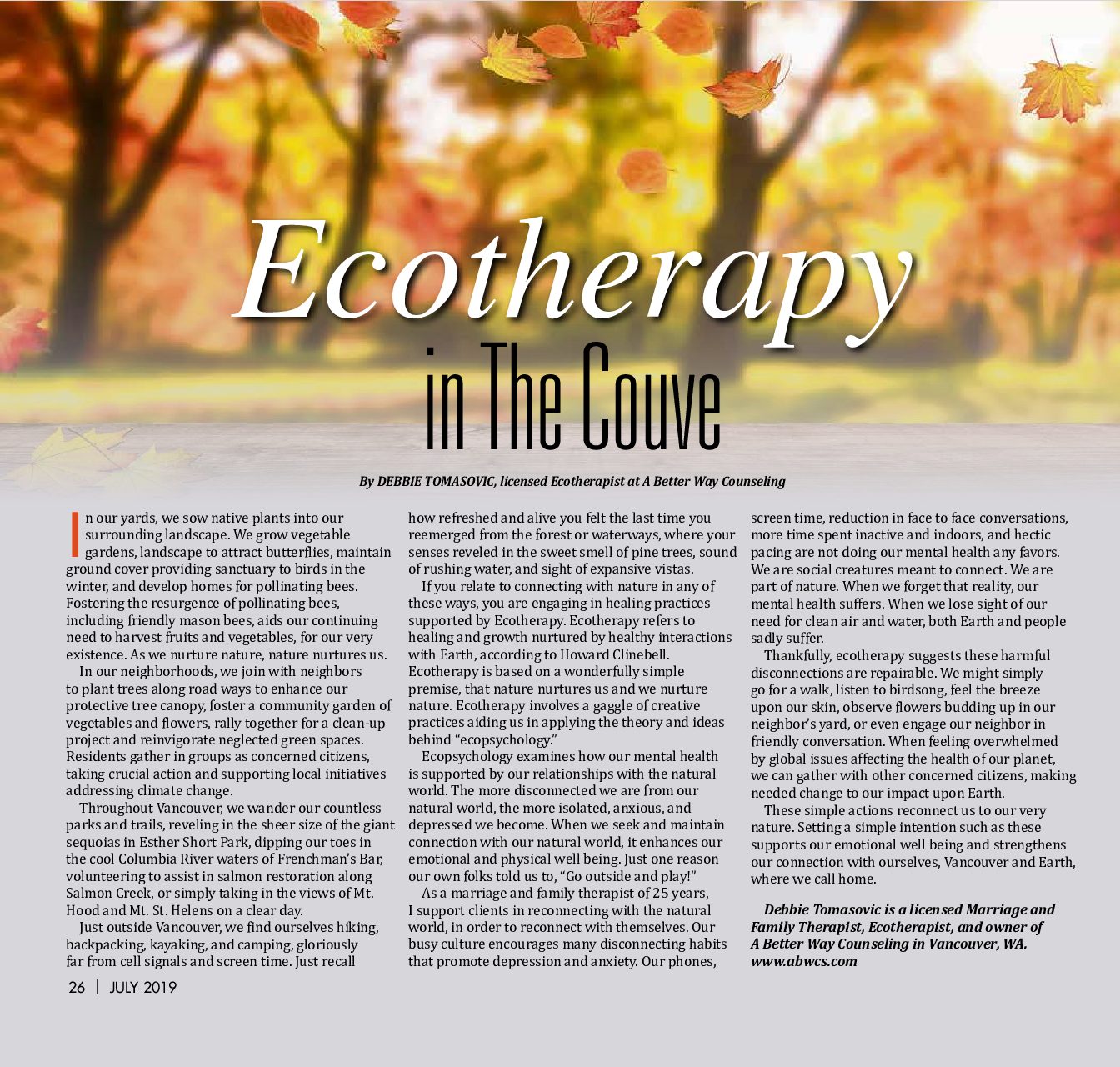Ecotherapy in The Couve
This article was published in the July 2019 edition of Living in the Couve.
By: Debbie Tomasovic, LMFT
In our yards, we sow native plants into our surrounding landscape. We grow vegetable gardens, landscape to attract butterflies, maintain ground cover providing sanctuary to birds in the winter, and develop homes for pollinating bees. Fostering the resurgence of pollinating bees, including friendly mason bees, aids our continuing need to harvest fruits and vegetables, for our very existence. As we nurture nature, nature nurtures us.
In our neighborhoods, we join with neighbors to plant trees along road ways to enhance our protective tree canopy, foster a community garden of vegetables and flowers, rally together for a clean-up project and reinvigorate neglected green spaces. Residents gather in groups as concerned citizens, taking crucial action and supporting local initiatives addressing climate change.
Throughout Vancouver, we wander our countless parks and trails, reveling in the sheer size of the giant sequoias in Esther Short Park, dipping our toes in the cool Columbia River waters of Frenchman’s Bar, volunteering to assist in salmon restoration along Salmon Creek, or simply taking in the views of Mt. Hood and Mt. St. Helens on a clear day.
Just outside Vancouver, we find ourselves hiking, backpacking, kayaking, and camping, gloriously far from cell signals and screen time. Just recall how refreshed and alive you felt the last time you
reemerged from the forest or waterways, where your senses reveled in the sweet smell of pine trees, sound of rushing water, and sight of expansive vistas.
If you relate to connecting with nature in any of these ways, you are engaging in healing practices supported by Ecotherapy. Ecotherapy refers to healing and growth nurtured by healthy interactions with Earth, according to Howard Clinebell. Ecotherapy is based on a wonderfully simple premise, that nature nurtures us and we nurture nature. Ecotherapy involves a gaggle of creative practices aiding us in applying the theory and ideas behind “ecopsychology.”
Ecopsychology examines how our mental health is supported by our relationships with the natural world. The more disconnected we are from our natural world, the more isolated, anxious, and depressed we become. When we seek and maintain connection with our natural world, it enhances our emotional and physical well being. Just one reason our own folks told us to, “Go outside and play!”
As a marriage and family therapist of 25 years, I support clients in reconnecting with the natural world, in order to reconnect with themselves. Our busy culture encourages many disconnecting habits that promote depression and anxiety. Our phones, screen time, reduction in face to face conversations, more time spent inactive and indoors, and hectic pacing are not doing our mental health any favors. We are social creatures meant to connect. We are part of nature. When we forget that reality, our mental health suffers. When we lose sight of our need for clean air and water, both Earth and people sadly suffer.
Thankfully, ecotherapy suggests these harmful disconnections are repairable. We might simply go for a walk, listen to birdsong, feel the breeze upon our skin, observe flowers budding up in our neighbor’s yard, or even engage our neighbor in friendly conversation. When feeling overwhelmed by global issues affecting the health of our planet, we can gather with other concerned citizens, making needed change to our impact upon Earth.
These simple actions reconnect us to our very nature. Setting a simple intention such as these supports our emotional well being and strengthens our connection with ourselves, Vancouver and Earth, where we call home.
Debbie Tomasovic is a licensed Marriage and Family Therapist, Ecotherapist, and owner ofA Better Way Counseling in Vancouver, WA.


